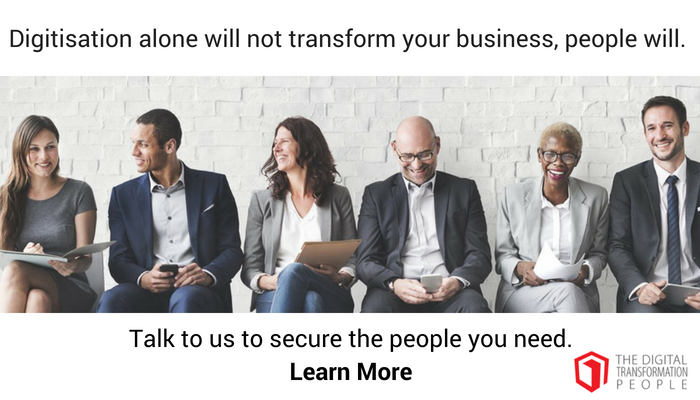There’s a wealth of information available that reinforces the increased rate and pace of innovation we enjoy today. Words like ‘exponential’ and ‘pervasive’ are used, now that computing power and tech, in general, has become more accessible.
We enjoy a wealth of choice thanks to improved connectivity, Smartphones, SaaS and many other revolutionary technologies, but this explosion of choice begs the question – how can we mere mortals keep up?
Over the years I’ve had the privilege of working with one of the most respected voices in this area, one Greg Verdino who articulates the rate and pace of change so well; “It’s a little like watching a horror film for large corporate firms. They are curious to know how quickly they could fall behind, and want to engineer a healthy appreciation or ‘fear’ to motivate their people.”
A regular keynote speaker on the international stage, Greg gets to witness reactions first hand; “When I’m presenting on this topic, I see the mixture of excitement and daunting dread on people’s faces, as they begin to appreciate what their competitors and other forward-thinking digital businesses are already up to”.
Greg’s insight comes from dealing with many different global organisations and compounds the mixture of feelings that can be associated with technological advancement. Fear? Dread? Optimism? Excitement? All mashed together and moving fast!
Much of how we respond to technological advancement will depend on our own individual approach. So, I wanted to share my tips for keeping up-to-date with technology and change.
The well-read and respected Sloan Management Review published a research report this year that discovered more than 90% of respondents say they need to update their skills at least yearly to work effectively in a digital world.*
I can relate to that because back in 2001 I reached a crossroads in my career where I felt some self-inflicted pressure to specialise in one or more areas of digital. Even then, the number of platforms, frameworks and languages were beginning to outgrow people’s ability to learn quickly enough.
Today the technology skills gap in our global economy is well documented. There’s a fight for technology talent and that in my opinion; has to be a good thing for the next generation of digital workers. The near-term could be described as a ‘perfect storm’ however, with the rate of digital innovation out-pacing our ability to keep up, and a severe shortage of people with the right skills.
Sure we have the gig-economy and that’s really exciting, but let’s be honest – we are all playing catch-up in today’s technology economy. According to the 2017 LinkedIn Workplace Learning Report, the average shelf life of skills today is less than five years. This means that today’s modern learners must always be learning in order to keep up and stay relevant to what the market is expecting.
For my fellow digital specialists, here are my tips towards the seemingly insurmountable number of technology trends we are expected to stay on top of:
Stay forever curious!
At times I’ve felt my naturally inquisitive nature being tested, as I open a door to a new topic that makes me realise how little I know about a given subject. This can happen when you decide to double-click the PDF guide that’s been rotting away in your inbox for months, meet someone who has more experience than you or visit a website that mentions words you’ve never even heard of!
It’s human nature to think everyone knows more than us but when the panic sets in, then it’s time to sense check if you really need to know what you think you need to know, that hour – of that day! As a consultant, I like to be over prepared, but sometimes it’s more beneficial to hold back from jumping down the research rabbit hole and park your curiosity for another day.
Clear your mind of distractions
This is my biggest tip by far: invest more time in how you approach your work, rather than trying to retain as much information as you possibly can. Now, some people are more academically inclined, and I get that. However, I’m not someone who enjoys kicking back of an evening and reading a research paper, especially when I could be watching a movie with the kids or kicking ass on PlayStation!
I’d rather spend the time developing my research skills, ready for when I do need to learn something. Simple tools such as Mention, Evernote and Twitter lists have been invaluable for me to find credible sources, dip in and get just want I need. I think it was Albert Einstein who said: “Never memorize something that you can look up”. Good enough for me.
Specialise? – Sure!
Let’s be honest digital is big – too big for any one person to know everything. Even if you do have every hour of every waking day to read as much as you like, attend events and training courses – by the end of the week it could be out of date. Which is why specialising in a certain sector or technology is a great way to focus your efforts, build your career credibility and reputation. This sounds painfully obvious (I know) but sometimes people need to hear it. Whether you’re at a career crossroads or just starting out: It’s OK to not know everything or feel the pressure to pretend that you do.
If I could do it all again, I would be a coder. I would research certain sectors, meet with people and ask questions about what technologies they see as being pivotal in the coming years. The larger software developers (I’m thinking Governments, Google, banks and the BBC) are having to make strategic decisions about which technologies to invest in over a period of years, so I would get involved in opensource initiatives to make a name for myself.
Let go of your fears
Not only is it ludicrous to pretend we can know everything digital, but it’s impractical. It’s most likely you enjoy (and hate) somethings more than others. My final tip is: if you don’t enjoy a portion of your work, then collaborate with someone who does. Assuming you’re not working to a deadline and it’s 11 pm the night before you need to deliver something, and assuming you have some autonomy in your work, my advice is to plan your workload and engage with people who relish the tasks you hate. That may be people within your own organisation or freelancers in your network.
For example, I don’t particularly enjoy Excel work (call me precious). It’s a means to an end, I know other people do it faster, and with less swearing. So, I tend to ask for help if I’m in need of Excel work that’s outside my comfort zone, and (of course) I offer to return the favour. In doing so I’ve learnt to appreciate why people enjoy certain tasks and picked up some amazing tips along the way!
I hope these tips are useful and good luck on your journey toward becoming an all-knowing digital superbeing!
*Coming of Age Digitally – Learning, Leadership, and Legacy, June 2018 – MIT Sloan Management.
Article by channel:
Everything you need to know about Digital Transformation
The best articles, news and events direct to your inbox
Read more articles tagged: Featured, Innovation, Strategy







